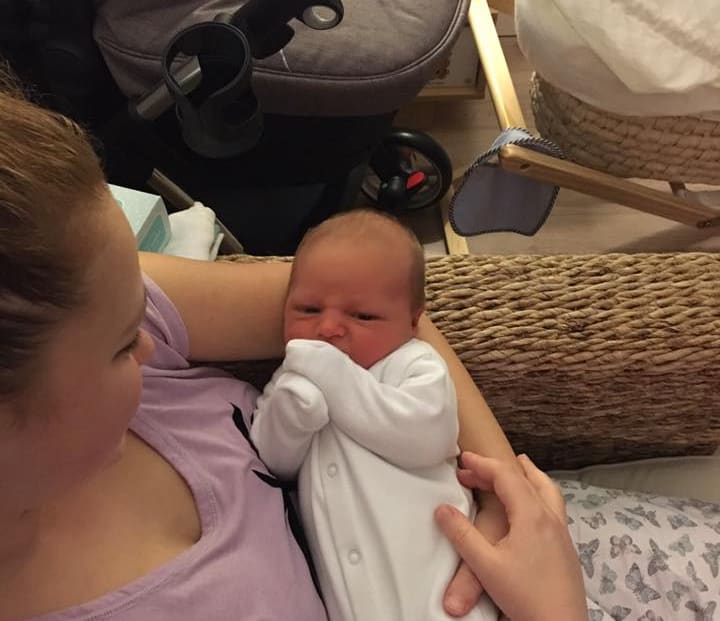Breaking the Loop: Why You Need to Stop Googling Your Anxiety Symptoms Today
How many of us are guilty of taking to Google search every time we have a new ache or pain in our bodies? With libraries worth of medical information in the palms of our hands, it certainly isn't uncommon. But what if I were to tell you that this habit could drastically worsen your anxiety, and even lead to the development of a more severe anxiety disorder?

Let me take you back to a time very different from today.
It's sometime in the spring/summer of 2017. I couldn't tell you what day it was because, at the time, days didn't exist. The sun would come up, then go again. To me, it was all just one day, the longest day of my life.
I'm sitting on a little, cheap sofa made of dark grey fabric that my Dad got from a show home on a building site he was working on. I was 20 years old, a university dropout, and a new Mum. So, I was just grateful that I had a couch at all.
My baby boy was in the corner of the room, napping in a wicker basket from the ironically named all-in-one store for expectant parents—Mothercare. The name is ironic because I'm sure they closed down because their entire clientele consisted of guilt-ridden new parents. People only went there because they didn't know much about nursery furniture and got ripped off. When they realised, they didn't go back again.
Naps are as precious for new parents as they are for the babies taking them. My children are my greatest joy, whole world, reason, and guiding light, but I still need a break from them sometimes. No amount of love in the world can make a human mind cope serenely with the crushing pressure of being needed every second of every day. New parents need their babies' nap time as much as a baby needs us. By that, I mean without it, we would die.

So, how was I spending my brief, well-deserved hiatus? Was I indulging in a steaming cup of tea? Was I binge-watching a beloved series? Was I relishing in a hot bowl of leftover cuisine undisturbed? Alas, none of these were true. Instead, I found myself scouring Google search results to uncover answers to questions like:
"How common is delayed postpartum haemorrhage?"
"Can you have a heart attack at 20 years old?"
"Can anxiety make you dizzy all the time?"
"Heart beating out of chest from anxiety. Is this normal?"
To name just a few.
I spent every day terrified, believing every off-feeling in my body meant death was mere moments away and I was going to drop to the floor and leave my newborn son home alone, defenceless and scared. The vivid images in my mind of him crying for me from his Moses basket and me not being able to answer his calls sent waves of terror down my spine. So, I obsessively engaged in safety behaviours to try and avoid it.
I had many safety behaviours. Shout out to my poor family and friends who had to switch their phones off because I would call at 5 a.m. and ask them to stay on the phone "in case something happened to me" - I'm sorry; I love you all so much. But by far, one of the worst ones was my obsession with Googling.
A feeling would arise in my body; I would get scared of the feeling, and then I would take out my phone and Google it. The Google search would temporarily quell my fears or send me into despair. I would dig and dig until I had proved to myself and anyone else who would listen that there was a chance my anxiety didn't cause my symptoms and something was seriously wrong with my health.
I feel so sorry for that scared, helpless 20-year-old version of me. My heart breaks when I remember how she was so tired and so sick herself, but all she wanted was to be sure that her baby was safe. I'd do anything to go and knock on her door, scoop her up off the couch, tuck her into bed, and enjoy playing with my newborn baby boy once more whilst she got the rest her mind desperately needed. Anxiety took so many of the days when he was tiny from me.
I'd give her a long, warm hug, make her a home-cooked meal, and then tell her everything I know now. See, the thing is, she was just trying to get some comfort and a sense of safety. She didn't realise that the things she was doing to feel that sense of safety were the very thing keeping her stuck in the anxiety loop. Jennifer Shannon described it as an anxiety-fueled hamster wheel, but jumping off it isn't quite as simple as just stepping down.
To break the loop, you must feel the full intensity of your fears - and then do absolutely nothing.
To anyone in the middle of a panic attack, this would sound absolutely insane. "Do nothing?!" I would have said, "But I'm dying! Call an ambulance right now!"
But the reason behind this approach is this: When we react to a stimulus of fear with an action, and then that action makes us feel safe, the brain learns two things.
1. Firstly, that the threat was real in the first place. The primal brain assumes that if a threat wasn't real, we wouldn't bother to react to it. If we do respond, the brain acts under the assumption that there really is a genuine threat to our lives. Then, in an attempt to adapt to its surroundings, it saves that moment as a learning moment and makes a note to be sure to alert you in the form of activating your fear response the next time the same stimulus pops up.
2. Secondly, it learns that whatever action you took to quell the fear and reinstate a feeling of safety saved you from the threat that's already been perceived as genuine. Thus, it makes a mental note to give you a little nudge to repeat that action should the fear come up again. Why wouldn't it? Since, according to the brain, your safety behaviour did save you this time.

The system isn't flawed, and neither is your brain. If you were in a genuinely threatening situation, this system would save your life. The brain is just doing its job, but it didn't evolve to be sophisticated enough to filter out the times we don't need its help from the times that we do. So what we end up with is a feedback loop of fear fuelling fear and a clinical diagnosis of anxiety and panic disorder.
In my case, the fear stimulus was my perception of the symptoms of anxiety or panic. For example, nausea, dizziness, light-headedness, shortness of breath, or a rapid heart rate. As is the case with many people who suffer from anxiety, I perceived these symptoms as dangerous when, in this case, they weren't. Even if they had been caused by something that needed medical attention at the time, I had overestimated the threat massively.
My reaction would then be to try and control or figure out the symptoms in some way to regain safety and control. For me, this looked like Googling my symptoms or searching for information on the internet about whatever I was scared might be happening in my body. There isn't necessarily anything wrong with looking up information related to your anxiety from time to time. However, if you find yourself scouring the web very often, it could indicate that you're developing a more significant problem.
As we know, knowledge is power. Having the knowledge of what safety behaviours were, why I was engaging in them in the first place, and how they were fuelling my anxiety allowed me to break the loop I was stuck in. It didn't happen overnight. Resisting the urge to soothe myself in those fearful moments took time and courage. Breathing through the intensity of overwhelming anxious feelings every day was gruelling. Over time, though, my brain learned that there was no threat, and I became less reactive towards symptoms that had once sent me into a blind panic.
Obviously, it goes without saying that we shouldn't just ignore any and all potentially dangerous symptoms when they come up; I went to the doctors and got checked out before going through this kind of exposure therapy. But suppose your doctor says that medically you're okay, but you're still experiencing anxious feelings combined with a barrage of physical symptoms. In that case, it might be to do some research into how anxiety works and even consider working with a therapist. Going through this process with the support of a knowledgeable, empathetic therapist at my side made the whole process so much easier. Which allowed me to advance quickly through the exposure programme we set out. It was like the reassurance you feel from having an adult hold the bike when you're trying to learn to ride without stabilisers. The pride you feel when you're out in the world tackling anxiety by yourself is comparable to that childlike wonder of riding off into the distance unaided too.
If you want a more in-depth explanation of the anxiety loop and how it works, read Jennifer Shannon's book "Don't Feed The Monkey Mind." If you decide to buy it and use this link, I will make a small commission from your purchase. But I wouldn't recommend anything I didn't believe was brilliant.
This book was a ray of hope for me during those dark days I mentioned earlier. It was the first time that I learned about how anxiety works, and I remember reading it as a turning point where I began to improve. I am immensely grateful to Jennifer Shannon for writing this book and making it so easy to comprehend and apply.
I hope this article was helpful. If you're struggling right now, I'm sorry things are hard. It might not feel like it today, but things can improve; I'm far from perfect, but I'm living proof of that.
Wishing you love, warmth, and healing on your journey,
Rebekah x
If this was helpful to you, you might also find value in the tips I outline for healing anxiety in this article:
About the Creator
Rebekah Crawley
I talk about healing, mental health advocacy, personal development, the human mind, philosophy, spirituality, and more.
Thank you for being here 🤍
📬 Twitter: @rebekahhhc224






Comments (1)
This piece came right on time! I'm going through something similar in my life and first off, happy to hear you made it on the other side. Second, I'm happy to hear that it (my more than usual crippling anxiety) will pass and I will get back to being engaged and not so worry about every little thing that goes on in my body. Thank you for sharing your story!